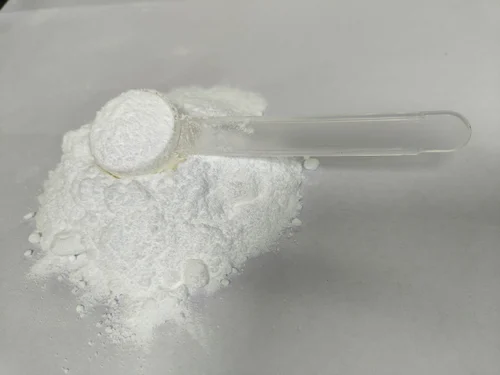
If you’re serious about optimizing your workout performance, you’ve probably heard about L-citrulline. This non-essential amino acid is becoming a staple ingredient in pre-workout formulas—and for good reason. Whether you’re a seasoned athlete or just starting your fitness journey, L-citrulline can be a game-changer for muscle pumps, endurance, and overall performance.
In this article, we’ll explore everything you need to know about L-citrulline, including its benefits in pre-workouts, comparisons with citrulline malate, and its potential effects beyond the gym. Let’s dive in.
What is L-Citrulline?
L-citrulline is a naturally occurring amino acid that plays a crucial role in the urea cycle, which helps remove ammonia from the body. It’s found in certain foods, like watermelon, but you’d have to eat an enormous amount to get the dosage typically used in supplements.
Unlike L-arginine, which is another amino acid linked to nitric oxide (NO) production, L-citrulline is more effective in increasing NO levels.
When ingested, L-citrulline is converted to L-arginine in the body, which then promotes nitric oxide production—a key factor in vasodilation, the widening of blood vessels. This process results in better blood flow, which is why L-citrulline has become a popular ingredient in pre-workout supplements.
The Benefits of L-Citrulline in Pre-Workouts
1. Boosts Nitric Oxide Production
The main reason athletes and fitness enthusiasts love L-citrulline is its ability to enhance nitric oxide (NO) production. NO plays a key role in expanding blood vessels, improving circulation, and delivering more oxygen and nutrients to working muscles. This increase in blood flow can lead to better endurance and stronger pumps during exercise.
2. Increases Muscle Pumps
If you’re chasing that full, vascular look during workouts, L-citrulline is your go-to. By increasing blood flow, L-citrulline helps you achieve the “pump” effect, where your muscles swell due to the increased blood flow. This not only feels great but also helps with muscle activation, giving you better mind-muscle connection.
3. Delays Muscle Fatigue
Studies show that L-citrulline can help delay the onset of muscle fatigue. By reducing the buildup of ammonia, a byproduct of intense exercise, citrulline allows you to push harder for longer. A 2010 study published in the British Journal of Sports Medicine found that L-citrulline can enhance aerobic energy production and improve endurance in human muscles .
4. Supports Muscle Recovery
Post-workout, L-citrulline helps increase blood flow, which can aid in delivering nutrients needed for muscle repair. Although its primary benefits are seen during exercise, the improved circulation may also help with reducing muscle soreness and speeding up recovery.
5. Improves Athletic Performance
Increased nitric oxide production not only enhances pumps and delays fatigue but can also improve overall athletic performance.
A study published in the Journal of Strength and Conditioning Research showed that participants who supplemented with L-citrulline could perform more repetitions during resistance training compared to a placebo group .
L-Citrulline for ED (Erectile Dysfunction)
Though L-citrulline is commonly known for its fitness benefits, it has also been studied for its effects on erectile dysfunction (ED). Because of its vasodilatory effects, it can improve blood flow, which may benefit those experiencing mild symptoms of ED. However, while this is an interesting benefit, it’s not the primary focus for most users looking to improve their workout performance.
L-Citrulline vs. Citrulline Malate: What’s the Difference?
When shopping for supplements, you’ll often come across both L-citrulline and citrulline malate. So, what’s the difference?
L-Citrulline is pure citrulline and is primarily focused on increasing nitric oxide levels and improving blood flow. This form is highly effective for enhancing pumps and performance.
Citrulline Malate is a combination of L-citrulline and malic acid. Malic acid is involved in the Krebs cycle, which helps produce energy. While citrulline malate may provide some benefits for aerobic energy production, the dose of L-citrulline in this form is effectively halved, making it less potent for increasing NO levels. For those looking to maximize pumps and performance, pure L-citrulline is the better choice.
How Much L-Citrulline Should You Take?
For optimal results, most studies recommend taking between 6-10 grams of L-citrulline around 30-60 minutes before your workout. This dosage range has been shown to maximize nitric oxide production, improve endurance, and enhance muscle pumps.
If you’re using a customizable pre-workout, like the one offered by BYOP, you can choose your preferred dosage of L-citrulline to tailor your supplement to your exact needs.
Final Thoughts: Why L-Citrulline Belongs in Your Pre-Workout
L-citrulline is one of the most effective and well-researched ingredients for improving workout performance. Whether you’re chasing bigger pumps, better endurance, or simply looking to optimize blood flow, L-citrulline should be a cornerstone in your pre-workout stack.
At BYOP, we offer L-citrulline as part of our customizable pre-workout blends, allowing you to fine-tune your supplement to meet your specific goals. Whether you’re looking to enhance performance or recovery, L-citrulline is an ingredient that will help you get the most out of every workout.
References:
- Sureda, Antoni et al. “L-citrulline-malate influence over branched chain amino acid utilization during exercise.” European Journal of Applied Physiology (2010).
- Bendahan, D., et al. “Citrulline/malate promotes aerobic energy production in human exercising muscle.” British Journal of Sports Medicine (2002).
- Hickner, Robert C., et al. “L-citrulline reduces time to exhaustion and increases nitric oxide production in athletes.” Journal of Strength and Conditioning Research (2010).
- Perez-Guisado, J., & Jakeman, P. “L-citrulline supplementation improves exercise performance and muscle oxygenation.” Journal of Applied Physiology (2007).
- Rhim, Hye Chang et al. “Effect of citrulline on oxidative ATP production and muscle recovery after intense exercise.” British Journal of Sports Medicine (2019).
- Campbell, Bill I., et al. “Effects of L-citrulline supplementation on exercise performance in resistance-trained males.” Journal of Strength and Conditioning Research (2019).